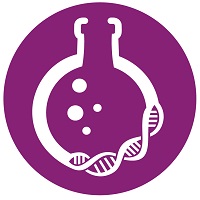Back
Bioanalytics – Biomolecular
Session: Symposium: Sample Challenges, Yet Opportunities (BM)
Considerations for Obtaining High-Quality PBMCs in Global Rare Disease Clinical Trials
Tuesday, October 18, 2022
9:30 AM – 10:00 AM ET
Location: 253 B
.jpg)
Karen J. Quadrini, PhD
Associate Director, Biomarkers and Precision Medicine
Passage Bio, Inc
Philadelphia, Pennsylvania
Speaker(s)
PBMCs (peripheral blood mononuclear cells) are a useful sample matrix for bioanalytical assessments including those required for monitoring safety and cellular immune response after gene therapy, a therapeutic approach tested in various rare disease clinical trials. Sample quality is paramount for obtaining interpretable results from cell-based assays that require PBMC as the matrix, with viable cell recovery and functionality critical for performance in downstream applications. However, obtaining sufficient high quality PBMCs from whole blood samples can be a challenge due to pre-analytical variables and limitations. Harmonization of PBMC isolation and cryopreservation is a key goal in global clinical trials. For rare indications, global clinical trials are essential for the broadest access to target patient populations, intensifying challenges in PBMC preparation and centralization. This presentation will review key preanalytical factors that impact PBMC quality. It will also highlight real world challenges encountered in harmonizing and centralizing PBMC processing for ELISpot (enzyme-linked immune absorbent spot) testing in gene therapy-based rare disease clinical trials, compounded by a global pandemic environment. Strategies to address these challenges, which include post-collection sample processing time limitations, bridging methodology, as well as transit and other logistics, will be discussed.
Learning Objectives:
- Upon completion, participant will be able to appreciate the importance of high quality PBMCs for cell-based assays, pre-analytical factors that impact sample quality, and the value of harmonizing PBMC preparation in global clinical trials
- Upon completion, participant will be able to understand approaches to harmonize or bridge PBMC processing
- Upon completion, participant will be able to recognize obstacles encountered in obtaining high quality PBMCs in global clinical trials for rare disease and potential solutions to mitigate risks with PBMC processing and centralization

